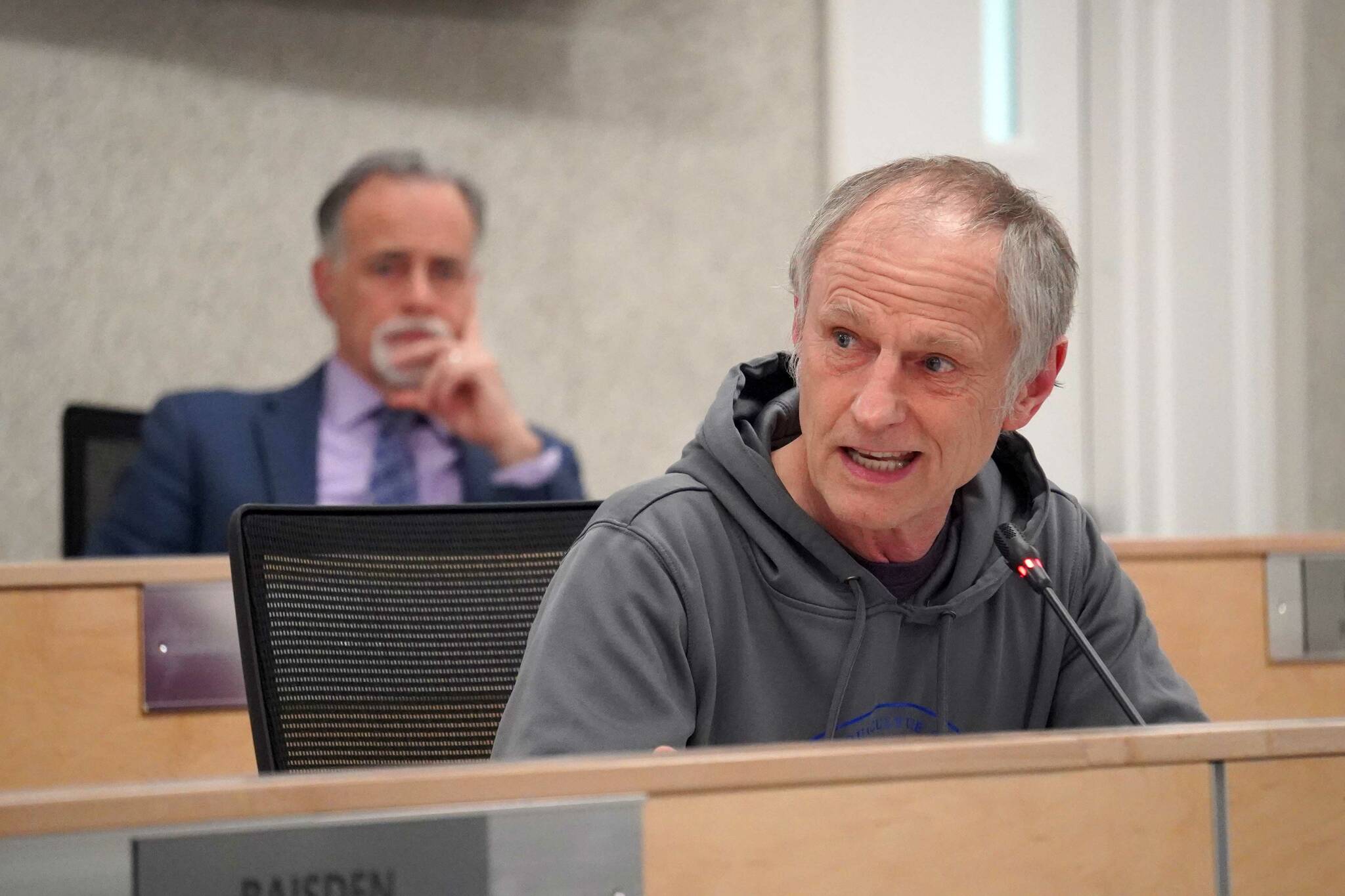The Kenai Peninsula Borough Assembly on Tuesday, April 15, killed a resolution that would have asked the Alaska Legislature to create an option in Alaska Statute allowing municipalities to cap increases of real property tax assessment to “no more than 5% from the previous year’s assessment.”
The move came after the resolution was postponed from the assembly’s April 1 meeting amid questions about how the cap would work. Cindy Ecklund, of Seward, asked for a “whiteboard demonstration” of how the delayed increases over years would balance out over time.
There was no whiteboard at the assembly’s meeting this week, and no additional documents or formal presentations were offered before the resolution was considered. Kenai Peninsula Borough Mayor Peter Micciche, who introduced and sponsored the resolution, said the legislation was simply asking for state lawmakers to give the borough the “right to even have the discussion.” The borough doesn’t have the power to create a cap right now, but if the Alaska Legislature created that power, a more in-depth conversation could be had later about how the cap would work and how the assembly wants to see it work locally.
Over the last 34 years, Micciche said, the average increase of property values is 4.33%, below the proposed 5% cap. He said the cap would offer relief at times of sharp increases — like the borough is experiencing now — that would ultimately level out within a few years.
“When you have valuation that’s increasing this quickly it’s very difficult for our families and seniors to budget,” he said. “We’re just trying to smooth that increase in annual expenses for them.”
Brent Johnson, a member of the assembly, said he still held questions about how property value increases would level out over time. He said he worried the burden of property taxes would shift toward newer homeowners.
Tyson Cox, of the assembly, similarly questioned what would happen if the inflation of property values were consistently above 5% and the borough was unable to catch up because of the cap.
Member Ryan Tunseth said he supported the resolution because it would add a tool for the borough to consider later. The questions being asked, he said, “feels like a debate that we’re having about something that’s not on the table right now.”
Micciche echoed that sentiment, saying assembly members were discussing the topic as if they were considering a binding ordinance and not a request to the Legislature to create the tool. Without that tool, he said, Alaska municipalities are required by state statute to assess all properties at their full and true value.
“The escalation we’ve seen in the last four years, which is 30.11%, is unsustainable, unaffordable, and we can’t do anything about it,” he said. “I’m asking for the ability to limit that growth.”
The resolution was killed on a 5-4 margin with Cox, Johnson, Ecklund, Willy Dunne and Peter Ribbens in opposition.
A full recording of the meeting is available at kpb.legistar.com.
This story’s headline was edited on Friday, April 18 to clarify that the cap would target specifically property value assessments.
Reach reporter Jake Dye at jacob.dye@peninsulaclarion.com.

